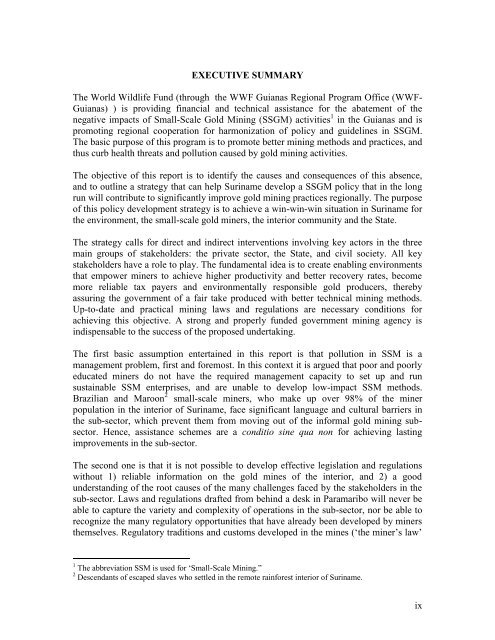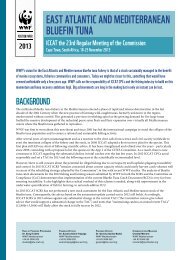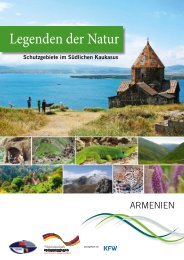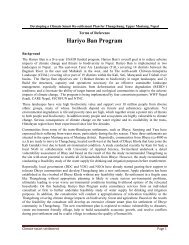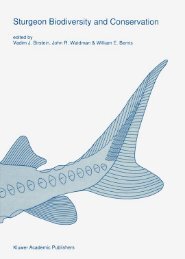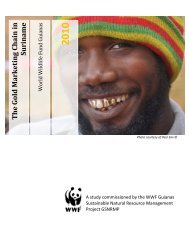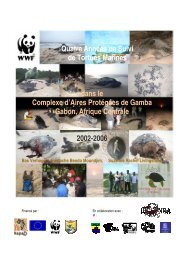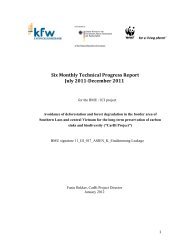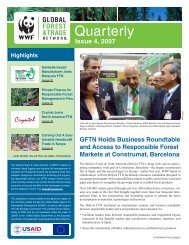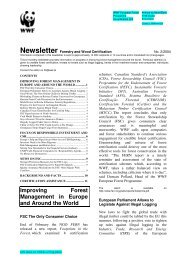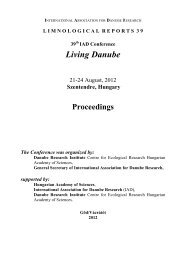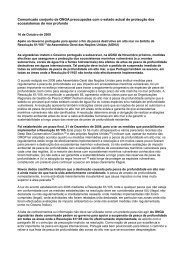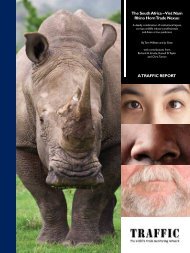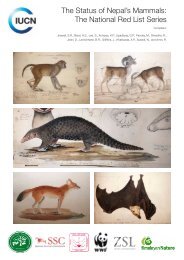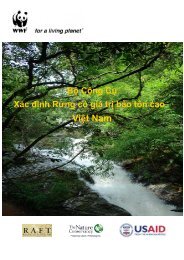SITUATION ANALYSIS OF THE SMALL-SCALE GOLD ... - WWF
SITUATION ANALYSIS OF THE SMALL-SCALE GOLD ... - WWF
SITUATION ANALYSIS OF THE SMALL-SCALE GOLD ... - WWF
You also want an ePaper? Increase the reach of your titles
YUMPU automatically turns print PDFs into web optimized ePapers that Google loves.
EXECUTIVE SUMMARY<br />
The World Wildlife Fund (through the <strong>WWF</strong> Guianas Regional Program Office (<strong>WWF</strong>-<br />
Guianas) ) is providing financial and technical assistance for the abatement of the<br />
negative impacts of Small-Scale Gold Mining (SSGM) activities 1 in the Guianas and is<br />
promoting regional cooperation for harmonization of policy and guidelines in SSGM.<br />
The basic purpose of this program is to promote better mining methods and practices, and<br />
thus curb health threats and pollution caused by gold mining activities.<br />
The objective of this report is to identify the causes and consequences of this absence,<br />
and to outline a strategy that can help Suriname develop a SSGM policy that in the long<br />
run will contribute to significantly improve gold mining practices regionally. The purpose<br />
of this policy development strategy is to achieve a win-win-win situation in Suriname for<br />
the environment, the small-scale gold miners, the interior community and the State.<br />
The strategy calls for direct and indirect interventions involving key actors in the three<br />
main groups of stakeholders: the private sector, the State, and civil society. All key<br />
stakeholders have a role to play. The fundamental idea is to create enabling environments<br />
that empower miners to achieve higher productivity and better recovery rates, become<br />
more reliable tax payers and environmentally responsible gold producers, thereby<br />
assuring the government of a fair take produced with better technical mining methods.<br />
Up-to-date and practical mining laws and regulations are necessary conditions for<br />
achieving this objective. A strong and properly funded government mining agency is<br />
indispensable to the success of the proposed undertaking.<br />
The first basic assumption entertained in this report is that pollution in SSM is a<br />
management problem, first and foremost. In this context it is argued that poor and poorly<br />
educated miners do not have the required management capacity to set up and run<br />
sustainable SSM enterprises, and are unable to develop low-impact SSM methods.<br />
Brazilian and Maroon 2 small-scale miners, who make up over 98% of the miner<br />
population in the interior of Suriname, face significant language and cultural barriers in<br />
the sub-sector, which prevent them from moving out of the informal gold mining subsector.<br />
Hence, assistance schemes are a conditio sine qua non for achieving lasting<br />
improvements in the sub-sector.<br />
The second one is that it is not possible to develop effective legislation and regulations<br />
without 1) reliable information on the gold mines of the interior, and 2) a good<br />
understanding of the root causes of the many challenges faced by the stakeholders in the<br />
sub-sector. Laws and regulations drafted from behind a desk in Paramaribo will never be<br />
able to capture the variety and complexity of operations in the sub-sector, nor be able to<br />
recognize the many regulatory opportunities that have already been developed by miners<br />
themselves. Regulatory traditions and customs developed in the mines („the miner‟s law‟<br />
1 The abbreviation SSM is used for „Small-Scale Mining.”<br />
2 Descendants of escaped slaves who settled in the remote rainforest interior of Suriname.<br />
ix


